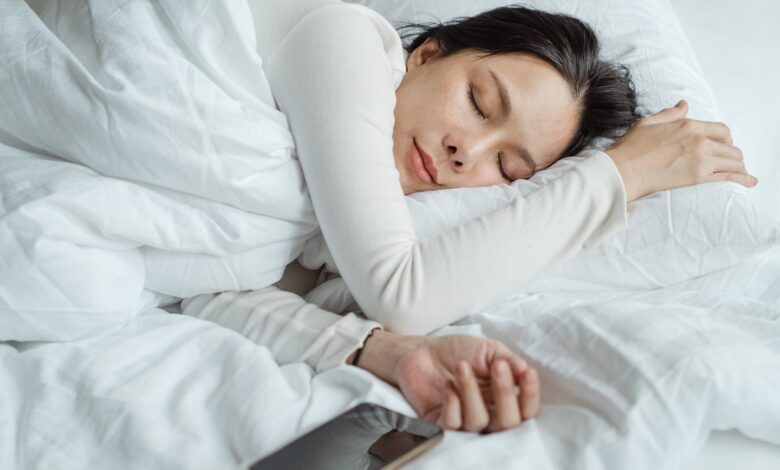
05 Feb Stress Relief in Lockdown: 5 Ways for a Better Sleep
The COVID-19 pandemic has affected many people’s lives at different levels – from forcing them to work remotely to rearranging their everyday routines to make the most out of the time spent in isolation. The lockdown has impacted the mental health of every single one of us, resulting in skyrocketing stress levels that entail sleeping issues.
Struggling with insomnia becomes common, so it is crucial to make sure you know how to avoid such a condition. Below, you will find some tips on how to improve your daily sleep routine and establish a sleep-inducing atmosphere at home.
Reduce Caffeine Intake
It is doubtful that you will limit your coffee intake to just one cup throughout the day. Indeed, it always gives you an instant but short-term kick, and you will be craving for one more cup right after the midday hits. It takes about ten hours for caffeine to leave your body completely, so the second cup has all the chances to disrupt your night’s sleep.
Still, there is no need to eliminate caffeine from your daily life completely. Consider drinking matcha-based beverages instead of coffee, as matcha contains less caffeine than brewed coffee but gives you a more sustained and long-term energy boost. It also positively affects your concentration and, therefore, productivity.
Starting with caffeine, think about other food products that impact your overall well-being. Consider acquiring some healthy eating habits as well as introducing superfoods or dietary supplements. For example, investing in wholesale CBD gummies will allow you to get yourself into a sleep-inducing mood before going to bed and may help your body to work at its best.
Don’t Work From Bed
Working from home has many different pitfalls, but the possibility to start working while you are still in your bed may become a real problem. Using your smartphone or laptop to reply to work-related emails will lead you to associate this place with work. It will prolong the time needed to get asleep. Stop doing that and follow a simple rule: the bed is designed for sleeping and sex.
Reduce Screen Time Before Bed
Finishing your day by scrolling a social media feed is equally harmful to your mental health the same way as starting every new day from it. First of all, it does not let your brain rest, and secondly – constantly absorbing the news will only increase anxiety and stress levels.
It is recommended to allocate about two hours before bedtime and spend that time without using any electronic devices (in a perfect world). While it may seem too long without any notifications and apps, it actually helps you sleep better. You can start with reading in bed for at least 30 minutes each night – it will either allow you to fall asleep faster or move on in your reading challenge, making it a win-win situation.
Try Meditation
The COVID-19 pandemic has brought many restrictions, including the lockdown and enormous amount of time spent in isolation. Such conditions expectedly provoke an increase in stress levels and anxiety, which may lead to insomnia as well. To calm your body and mind and prepare yourself for a good sleep, consider introducing short meditations into your night routine.
You can look for a deep breathing technique or try mindfulness meditation to manage stress, fight insomnia and improve your sleep. Simply focusing on your breathing is indeed capable of bringing significant changes to the quality of your sleep and both physical and mental well-being.
Go Outside
The lockdown implies staying at home as much as possible, but it is essential to understand that fresh air is vital for your brain functioning and circadian rhythm – let’s just say it clears your mind. A simple evening walks for about half an hour before bedtime improves your sleep. Make sure to create the opportunity to go outside every day, but remember to stick to social distancing and other coronavirus-related requirements in your area.
Conversely, any intensive physical activity is not recommended to take part before going to bed, as you will not be able to fall asleep after dynamic training. Make sure to allocate some time for exercising in the morning or choose a calming and relaxing activity in the evening – like yoga or stretching before bed.
Conclusion
Coronavirus pandemic is so widespread it has reached out to even our alone time, and more importantly – hours spent in bed. For many people, a good, restful sleep became a very rare occurrence.
If you want to avoid any possible sleeping issues, it is vital to arrange yourself a comfortable sleeping place associated with rest, not working or entertaining yourself. Ensure introducing healthy habits like meditating and reducing any possible distractions – mainly electronic devices – into your night routine. It will allow you to fall asleep faster and wake up refreshed!
Source link






